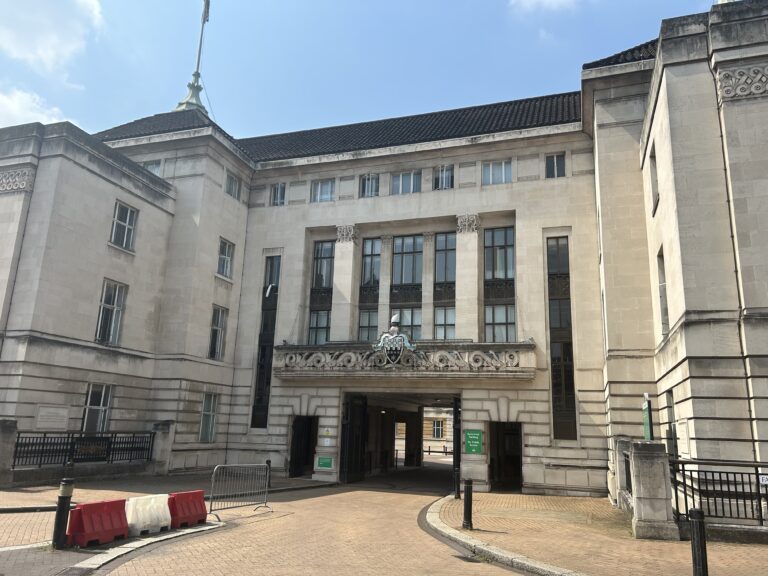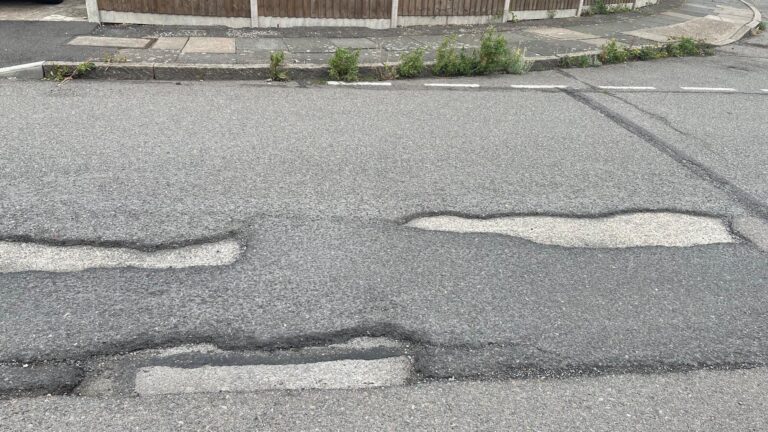Sadiq Khan has “applauded” Lambeth Council for suspending a controversial low traffic neighbourhood (LTN), while dismissing the idea it could set a precedent for the removal of similar schemes.
The mayor said it was clear the Streatham Wells LTN had caused “unintended consequences” and that it was the right decision to suspend it, but suggested that its problems were due to exceptional circumstances.
Labour-run Lambeth Council said the combination of the Streatham Wells scheme and “frequent roadworks by Thames Water and other bodies” had caused a “significant strain on bus services” on the A23.
It led the authority to suspend the scheme on Thursday, following comments from Mr Khan on LBC last week, in which he said the council-designed LTN was “not working” and was “causing huge problems”.
The decision came as a relief to many local residents, but walking and cycling campaigners said it was a “backward step” that would mean “more traffic on residential streets, more traffic overall, fewer opportunities for walking and cycling, and more road danger for everyone”.
Asked what his message was to those campaigners, the mayor said: “Not every single scheme will be perfect. Some schemes will be begun, and there’ll be consequences that aren’t always positive.
“I think Lambeth is a brilliant council, they’ve had brilliant LTNs across Lambeth. This one has caused some challenges – I think they’ve done the right thing by suspending it.”
Asked whether he was concerned about a precedent being set for other LTNs to be removed, he said: “In the short term, there often are challenges [with LTNs].
“In relation to this particular LTN, we know there were utility companies digging up the road on a regular basis, causing big problems with delays in buses, and other challenges on transport, unintended consequences.
“I think the council has got really good experience of other LTNs that have worked really well – I’ll be visiting one later on today.
“I think it’s good though that when a council realises a scheme is not as it’s intended, they decide to suspend it. I think Lambeth should be applauded for their pragmatism.”
Lambeth Living Streets and Lambeth Cyclists said in a joint statement on Thursday that the council and Transport for London (TfL) should “immediately confirm a timeline for the reintroduction of the LTN and the details of the promised bus priority measures on Streatham High Road”.
They added: “Politicians often say they want safer streets, more cycling and walking, and fewer car journeys. It’s much rarer that they have the courage to do the things that make this possible.
“We’re grateful to everyone who’s stood up for this scheme and we ask those who haven’t to reflect on whether their actions really match their words. We look forward to seeing the LTN back as soon as possible accompanied by the main road measures to support it.”
The LTN was launched on a trial basis last October on residential streets east of Streatham High Road (A23), and was intended to remain in place for 12-18 months.
It had been blamed over recent months, and particularly in the last few weeks, for clogging up the high road with traffic. This was thought to be due to the LTN affecting the entry-points vehicles were using to emerge onto the main road.
Buses were frequently among the vehicles stuck in gridlock at rush hour, including several arterial routes providing connections south from Brixton Underground station, such as the 118, 250 and 333. One bus was reported to have taken more than two hours to travel less than three miles.
Commuters heading into Streatham were in some cases being left close to the South Circular Road, as buses terminated early to avoid entering the traffic chaos.
In a statement, Lambeth Council said its decision to suspend the trial LTN was made “in response to concerns about public transport delays and anticipated disruption from planned Transport for London (TfL) construction works on the A23 starting later this spring”.
The council added it was now working with TfL to implement “a comprehensive package of bus priority measures… and help prevent bus delays in future”, while an additional £9m TfL upgrade to walking and cycling was set to start at the end of spring.
However, the council defended the LTN’s impact, stating there had been “an average 60 per cent decrease in traffic within the LTN”, although there had been “an 8 per cent increase in traffic on boundary roads”.
It also cited a 2 per cent net reduction in traffic across the area and a 68 per cent fall in the number of vehicles breaking the speed limit compared with pre-LTN levels.
The council’s deputy leader, Rezina Chowdhury, said: “We’ve listened to the concerns raised by local people and recognise the major disruption coming as part of transport improvements on the main road running through Streatham.
“We always said that this was a trial, and we would be led by the data – and the monitoring report makes it clear that the scheme met our objectives to reduce traffic and road danger. The combination of factors together would cause too much disruption for Lambeth residents.
“But equally, there have been delays in bus journeys on the A23 which has had an impact on many residents.
“Suspension will stop more significant delays occurring when the investment in the A23, including new segregated cycle lanes, starts later this spring and allows time for bus priority measures to be implemented all along the A23.”





